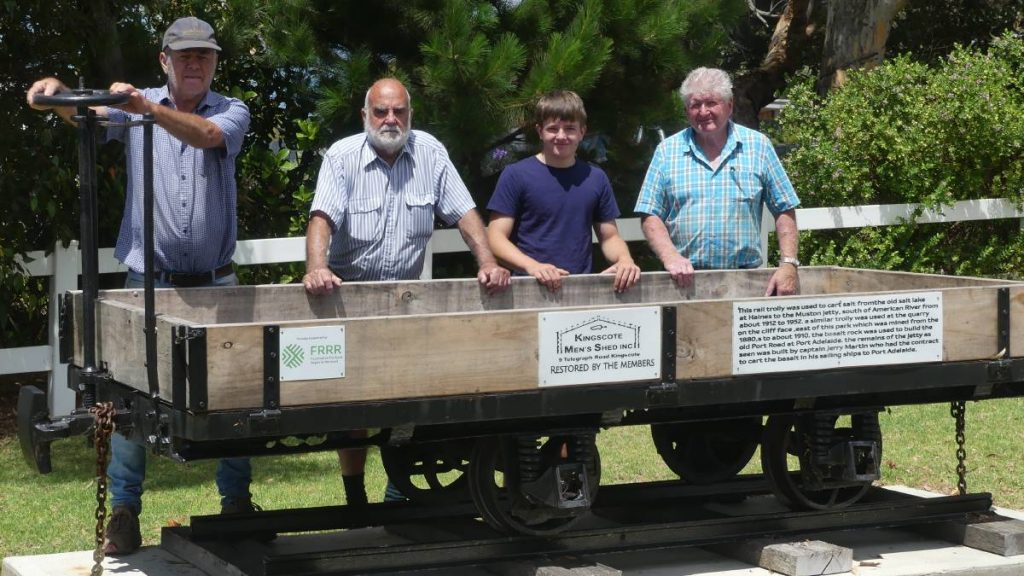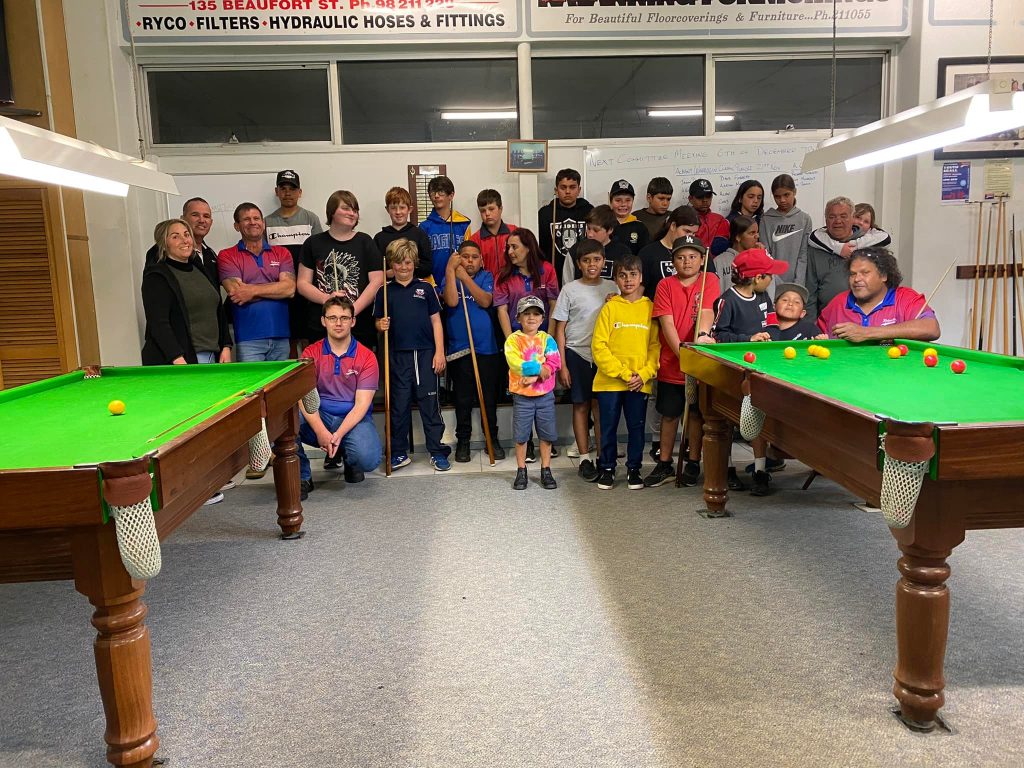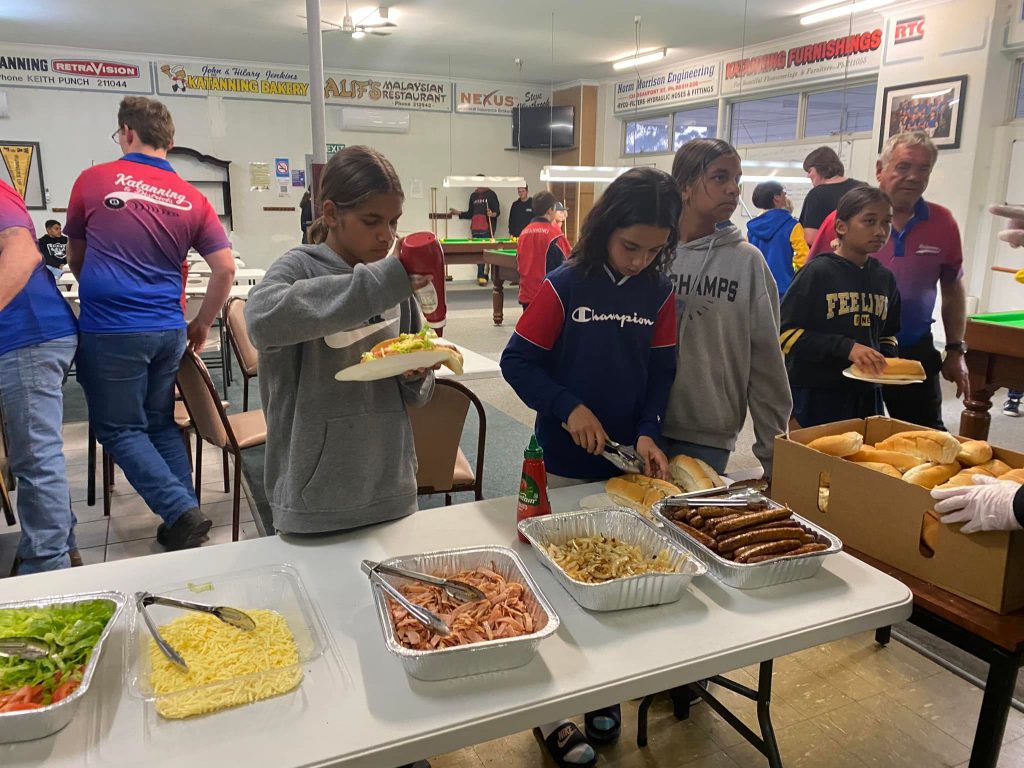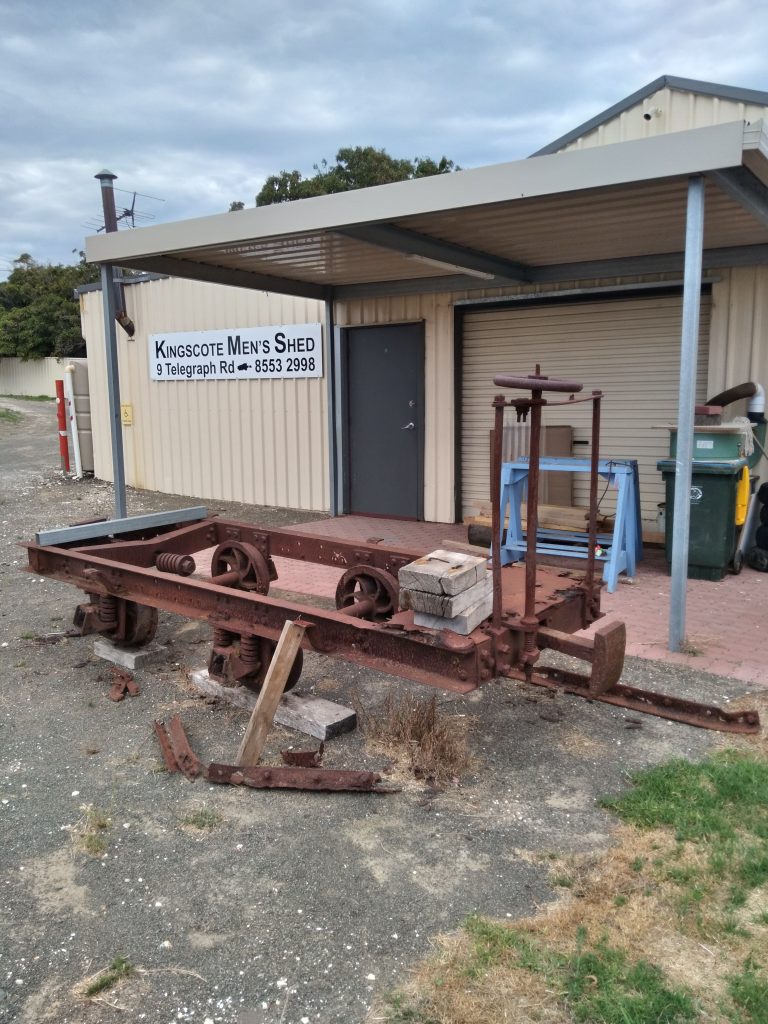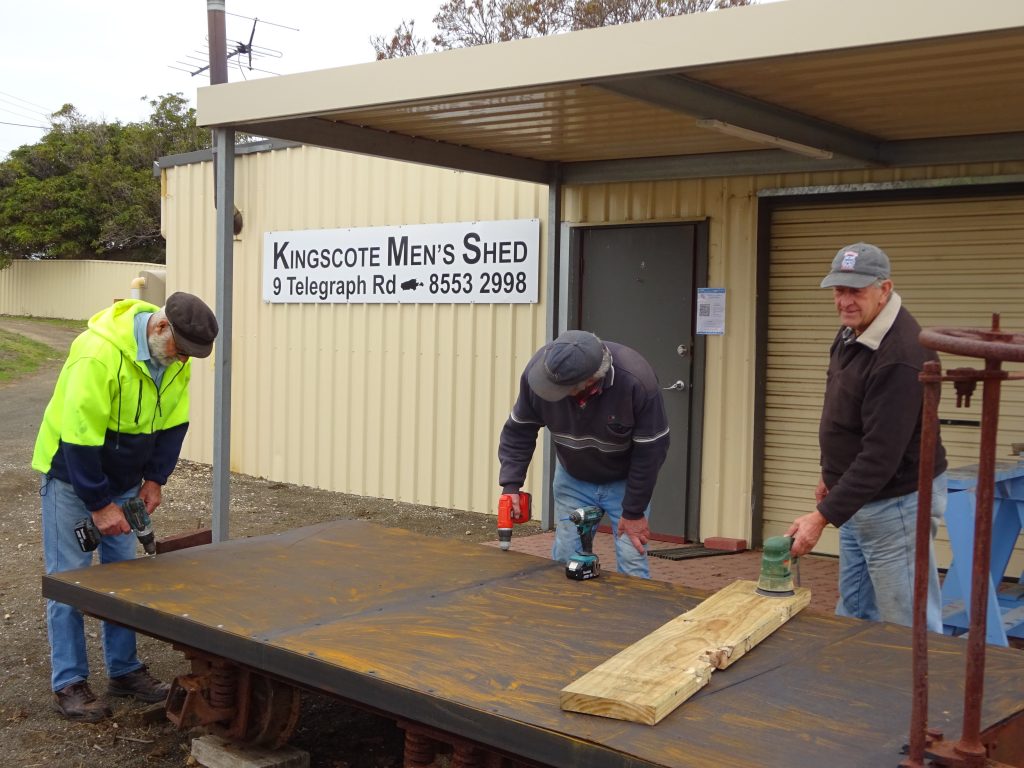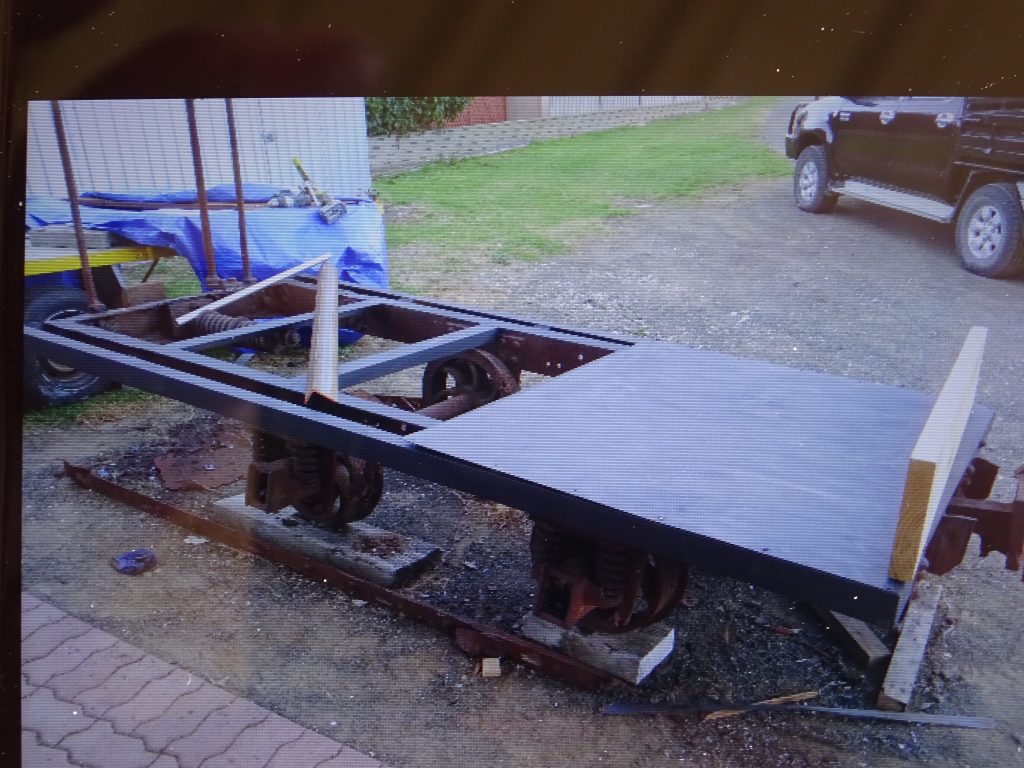Foundation for Rural & Regional Renewal (FRRR)
Mission Australia has worked in partnership with Mid Coast 4 Kids to deliver ‘The Common Approach’ training to build capability for a whole of community response to child youth wellbeing in the Mid Coast region.
The Mid Coast was dramatically impacted by the South Eastern Australia floods in 2022. The townships of Taree, Wingham and Gloucester were inundated or compromised with flood waters and structural damage cutting communities off for long periods. There was flood damage to farm lands, residential housing areas and outlying communities. This disaster compounded significant stress that has been experienced in the communities for an extended period due to the impact of prolonged drought, COVID-19 and bushfires.
As a result, early childhood centres and schools reported increased anxiety and trauma-related behaviours in children and young people, and the service system was not coping, with allied health and other support services reporting wait times of more than 12 months.
‘The Common Approach’ has equipped a range of members of the Mid Coast community with the skills to have quality conversations and build resilience to respond to the wellbeing needs of children, young people and their families, now and into the future. In total, 228 people including community service, health and education professionals, community volunteers and parents were trained to have evidence based, holistic conversations with children and young people about all aspects of their wellbeing.
Participants report increased confidence in being able to support children and young people to identify strategies to improve individual wellbeing. “Through this intervention we have equipped our community to share responsibility for promoting and supporting the health and wellbeing of children and young people in our community, via evidence informed practice,” says Program Manager Bree Katsamangos.
“Additionally, practitioners will benefit from the opportunity to engage in a bi-monthly Community of Practice to support ongoing development and practice.”
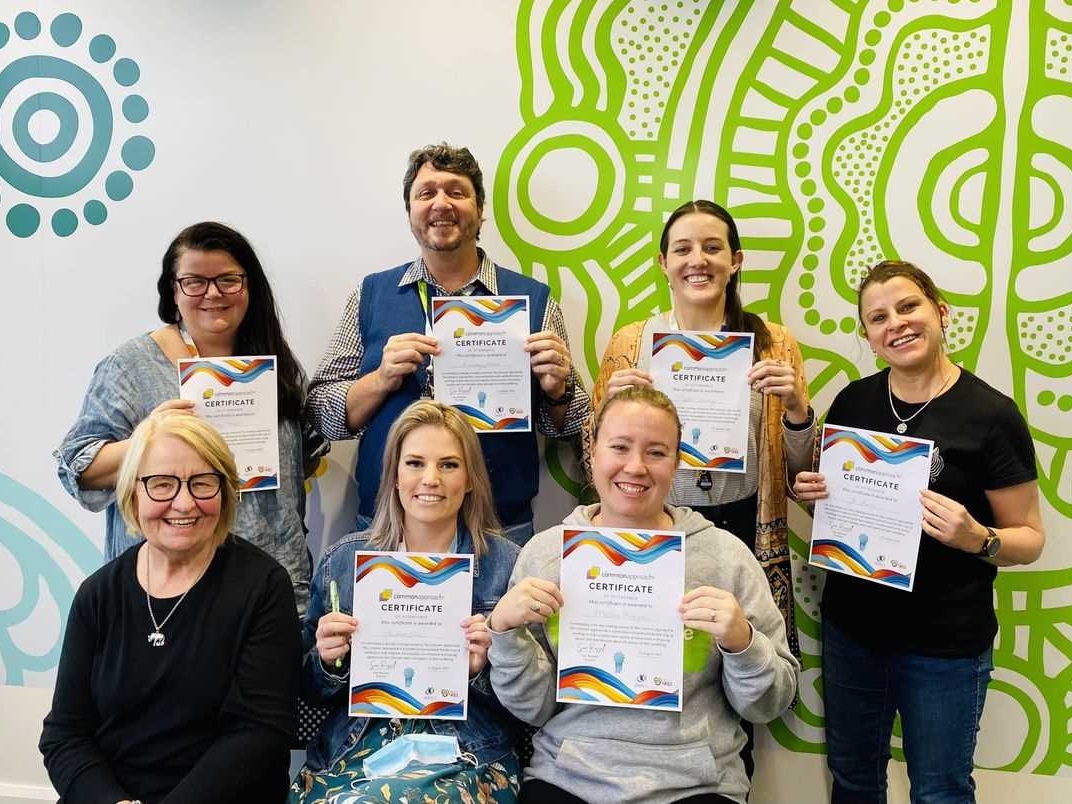
The Mooloolah Community Centre is the home and work hub of Mooloolah Valley Community Association Inc, located on the Sunshine Coast in Queensland. The Centre is run by a Management Committee of 10 volunteers from wide and varied backgrounds including finance, defence, nursing, social work, local government and administration, and there are a team of volunteers who support the Centre by doing tasks from garden maintenance to assisting in the Op Shop. Everyone at the Centre works for the benefit of the Mooloolah community, and the positive flow-on effects are felt throughout the Mooloolah Valley postcode area.
In February 2022, the flooding closed all roads into the town, cutting it off for four days and causing a loss of power across the area. The lack of a reliable power source during this disaster revealed critical vulnerabilities in the community for being able to charge phones and stay in touch with loved ones. Additionally there was no hot water and the Community Centre couldn’t open.
After receiving $25,000 in Round 2 of the Rebuilding Futures program, funded by the Suncorp Group, the Community Centre has now securely installed a solar battery pack ready for any future disasters or power outages. The installation of the solar batteries has completed a significant preparedness project by this group, who over the last year, have added emergency lighting, directional emergency lighting and evacuation alarms so the community can be prepared and therefore more resilient in times of extreme weather events.
The Community Centre says it is ready to support the needs of the community in times of distress, including having the Op Shop open to allow people to obtain emergency clothes if required, and enabling the Welfare Officer to operate and offer vouchers for food and fuel. The website has been updated with a new ‘Community Resilience Service’ that promotes an offering of a place of refuge during disaster, including the basics like a hot drink, charging phones, using the internet and much more.
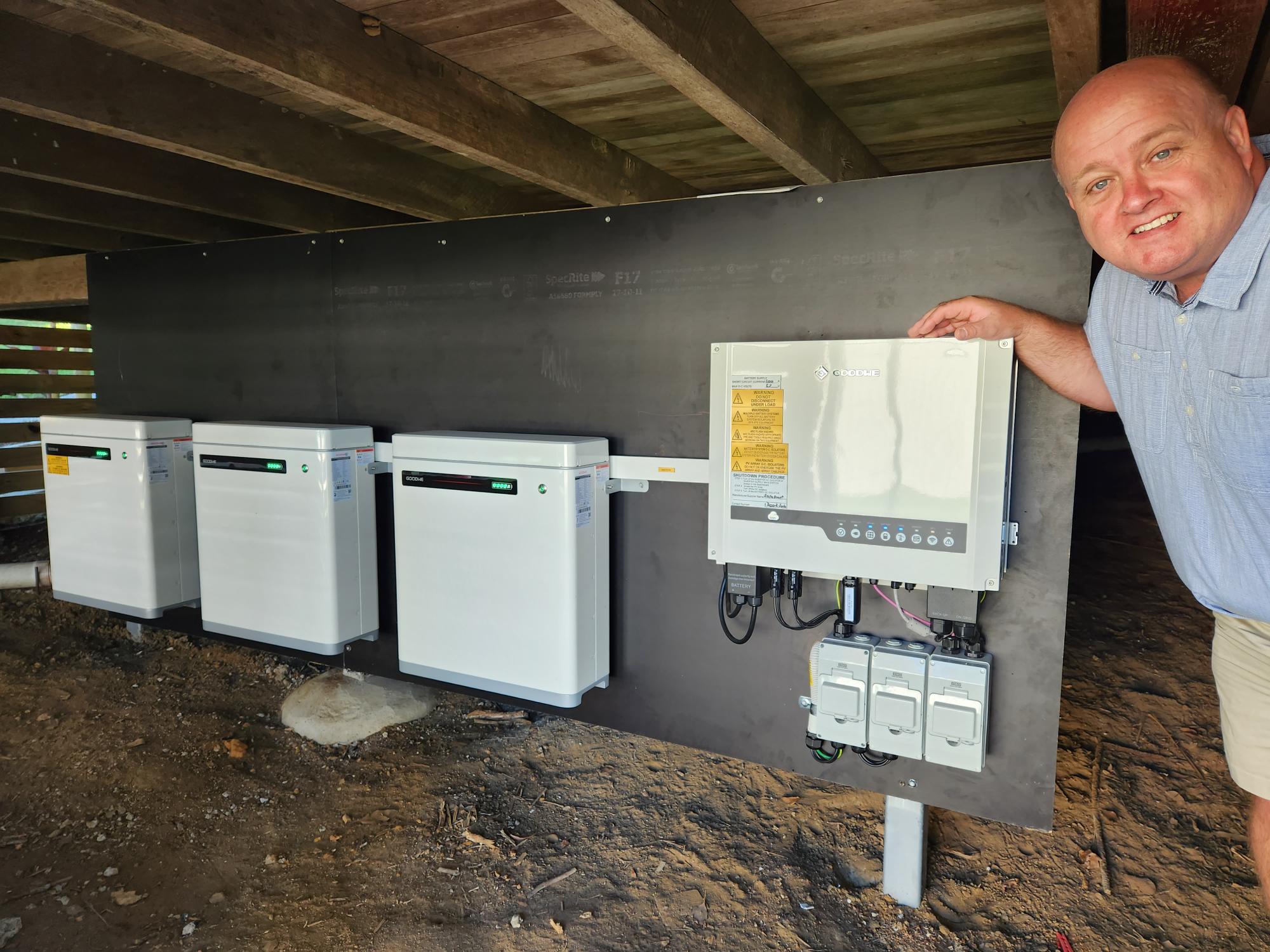
Mooloolah Valley Community Association Inc’s Events & Grants Officer, Jason Carroll
Grants up to $20,000 available for recovery projects
Local community groups and not-for-profits in rural Victorian communities impacted by 2022-23 floods are encouraged to apply for grants up to $20,000 for projects that will support their community’s recovery.
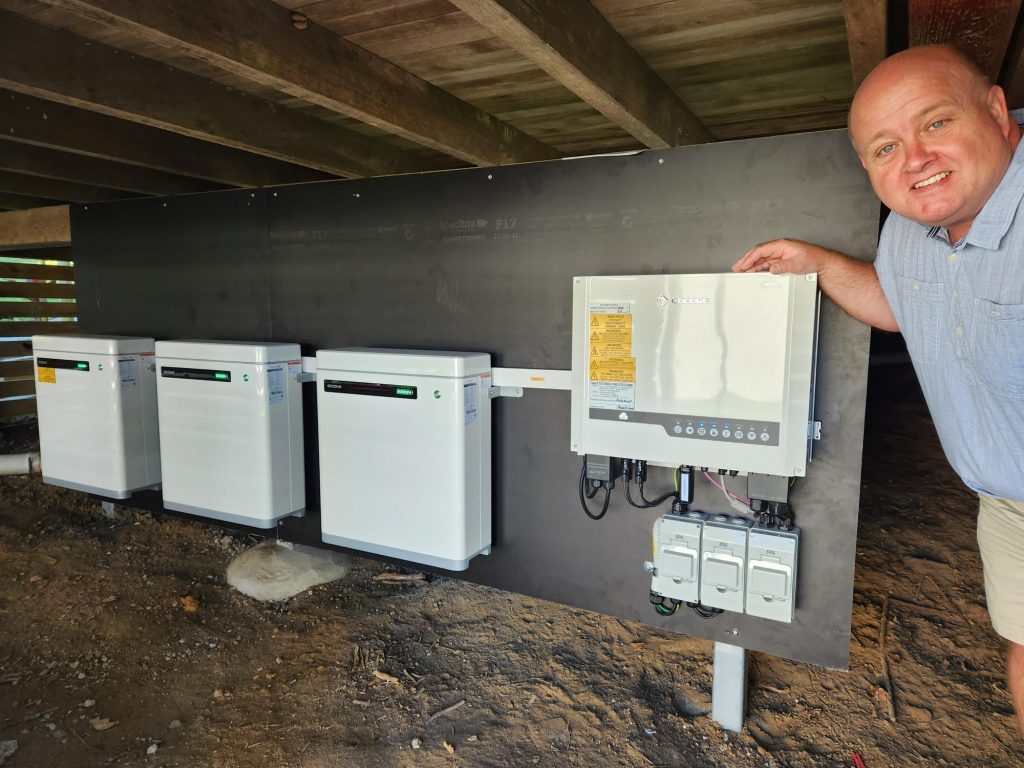
In partnership with Suncorp and AAMI, FRRR is offering $300,000 for initiatives that build resilience and support medium to long-term recovery of communities affected by the flooding and storms that occurred in specified LGA’s between 6 October 2022 and 13 January 2023.
Funded through the Rebuilding Futures program, these responsive grants are available for proactive initiatives that are community-led.
Nina O’Brien, FRRR’s Disaster Resilience & Recovery Lead, said that extreme weather events, like the flooding and storms experienced by rural Victorian regions late last year, affect every community member, especially those who are most vulnerable and rely on community organisations for support.
“Different groups within the community, such as those living with disability, homelessness or who speak English as a second language, will be impacted differently, and as such, will have their own needs in terms of building resilience and how they can prepare for future disaster events.
“We encourage community groups to be inclusive with their initiative ideas and consider how their project can support community members from all nationalities, socio-economic and cultural backgrounds.
“We also encourage community groups to think outside the box when it comes to infrastructure and equipment projects by considering resilient materials and harnessing clever use of design to decrease future impacts of natural disasters,” Ms O’Brien said.
Suncorp’s Group Executive People, Culture & Advocacy, Fiona Thompson, said that natural disasters, such as the Victorian floods, have devastating impacts that are complex, context-driven and long-lasting.
“This is the third disaster-affected region that we’ve supported through this program over the last couple of years, so we know the impacts in each place are different. One thing is always the same though; local people are best placed to know what the needs and priorities of their community, especially following a natural disaster event.
“Thanks to our partnership with FRRR, we’re pleased to be able to provide flexible funding that means communities can determine how best to address the medium to long-term recovery, resilience and preparedness needs and priorities for their region,” Ms Thompson said.
A Grantseeker Workshop, including a Q&A, on the Rebuilding Future’s grant program will be held online from 12 – 1pm AEST, Wednesday 7 June 2023. Register for the Grantseeker Workshop here.
Applications close 6 July 2023.
Previous projects funded through the Rebuilding Futures program include:
- During the floods in February 2022, Mooloolah Valley, QLD, experienced intermittent loss of power that impacted the community’s access to lighting, hot water and technology. To help the community prepare for future disaster events, the Mooloolah Valley Community Association Inc used a $25,000 grant to purchase and install three batteries that can be used to supply power to the region. The batteries are able to store energy from the Centre’s existing solar panels. The grant also funded fencing to ensure the new batteries are stored safely and securely. Thanks to the community’s resilience and preparedness, the batteries were able to keep the community’s power running during the two electricity outages that Mooloolah Valley has experienced since the batteries were installed.
- Following the NSW and QLD floods in 2021, Mission Australia and Mid Coast 4 Kids partnered to respond to child and youth wellbeing across the Mid Coast region. The partners used a $10,811 grant to deliver training to local community service, health and education professionals, volunteers and parents. Their aim was to ensure they were equipped with the skills to have quality conversations and build resilience to respond to the wellbeing needs of children, young people and their families.
For more information about which regions are eligible, the type of projects that can be funded, and to register for the Grantseeker Workshop, visit our Rebuilding Futures webpage.
In this quarter’s update for FRRR’s partners and supporters, we’re focussing on the big difference that small grants make. Read about:
- A very impactful tractor funded in South Australia’s Flinders Ranges
- How you can support RRR communities now, and for the long-term before EOFY
- Synergies between FRRR and our partner GlobalGiving’s funding philosophy
- Insights from the Bush
- Our Progress – Q3 FY 2022/23
- Partnering opportunities to activate great projects
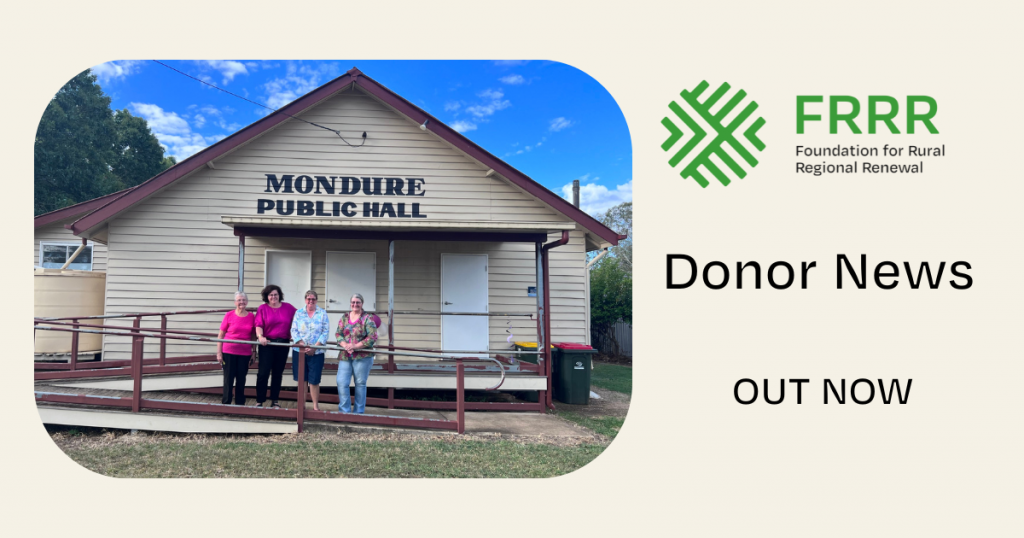
In this quarter’s update for FRRR’s donor partners, read about:
- Official opening of First Steps Count in Taree, NSW
- A new Giving option
- Bushfire Recovery, three summers on
- Insights from the Bush
- Our Progress – Q2 FY 2022/23
- Partnering opportunities in youth and education
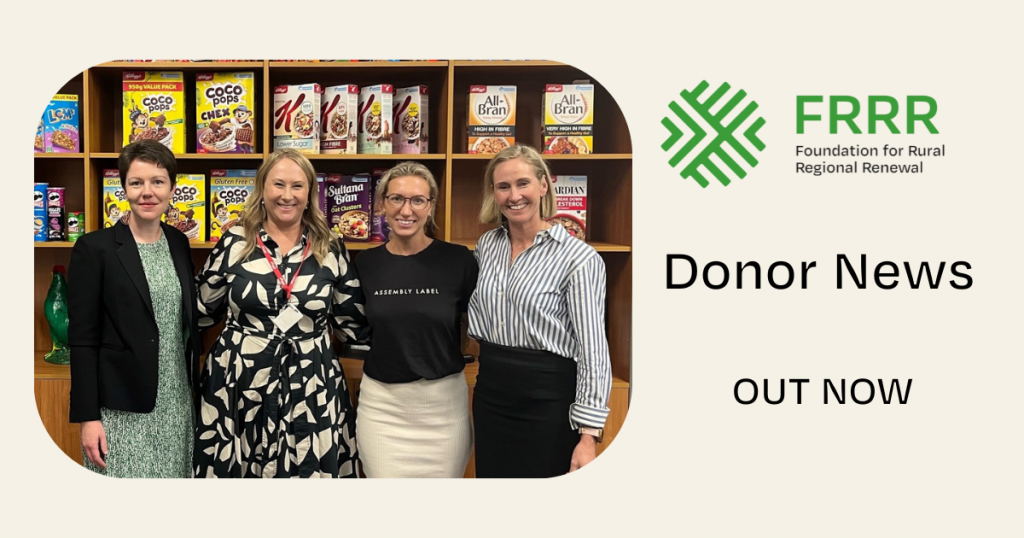
In this quarter’s update for FRRR’s donor partners, read about:
- Connecting with Communities
- Progress Report
- Insights from the bush
- Donor spotlight: Nutrien Ag Solutions
- Community partner spotlight: Housing Matters Action Group Inc (HMAG)
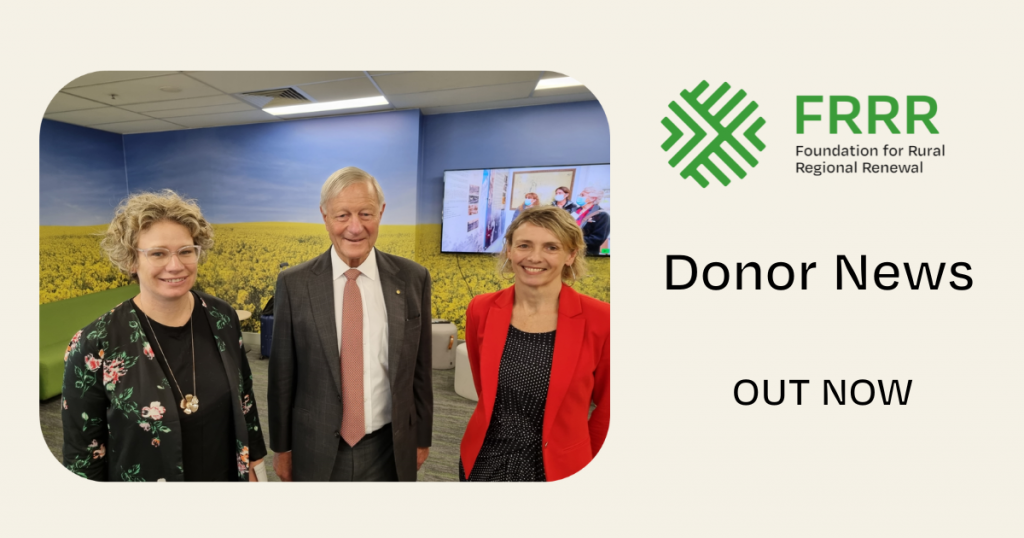
As thousands of Australians continue to be impacted by floods in Victoria and Tasmania, FRRR is seeking donations to meet the recovery needs of the remote, rural and regional communities that will need help and support in the coming months and years.
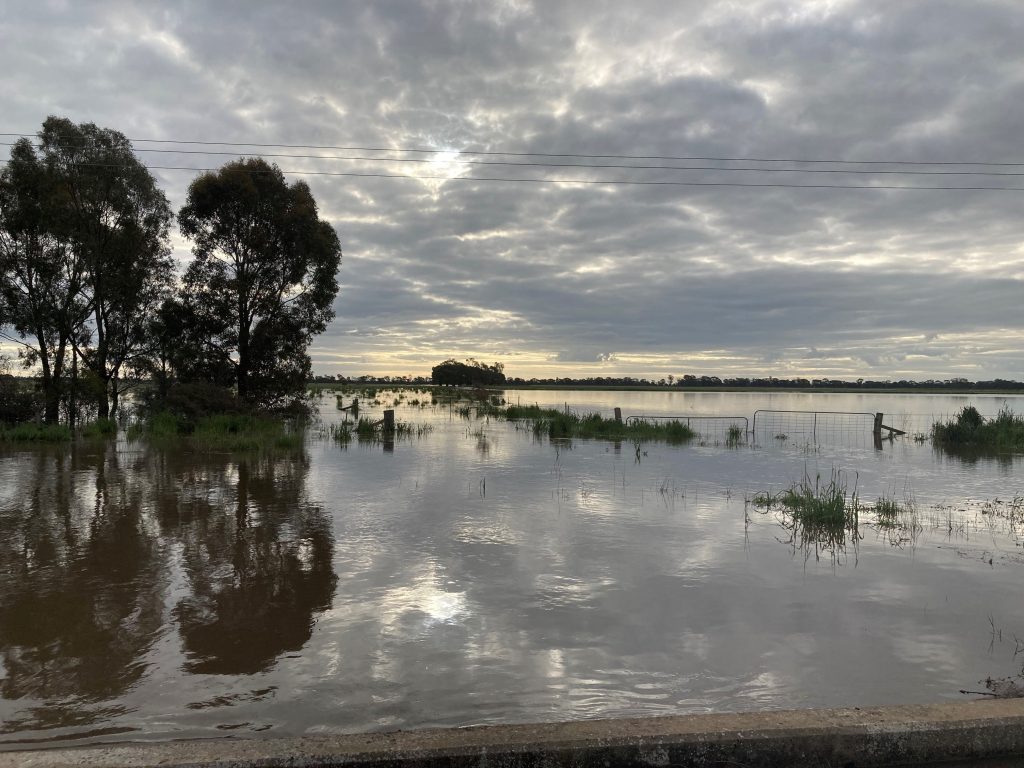
Natalie Egleton, CEO of FRRR, said that the Foundation has already seen local people and organisations once again step up and come together to support one another in the lead up and, as waters start to recede in some places, with the long road to recovery that they have ahead of them.
“The people and places in flood affected regions throughout Victoria, New South Wales and Tasmania will continue to feel the impacts of what’s unfolding for months and years to come. We really can’t stress enough just how big the long term social and economic consequences can be as a result of these kinds of natural disasters.
“Many of these regions, particularly those in Central Victoria, have been through this kind of disaster before, making the current floods all the more traumatic. Many members of the FRRR team themselves have spent the last few days evacuating, helping loved ones to evacuate or have been out sandbagging in their local communities.
“In the last 20 plus years, FRRR has built strong networks and relationships with the people and the community organisations that are being impacted right now and, as always, we’ll be waiting and ready to support them throughout the medium to long term recovery process. Donations to our flood appeal will help to rebuild infrastructure in these areas, address the physical and mental health challenges that occur as a result of this disaster, build the capacity of community groups and strengthen community-led recovery efforts,” Ms Egleton explained.
People can support FRRR’s Flood Recovery Appeal by donating to the Disaster Resilience and Recovery Fund, the Central Victorian Fund or the Strengthening Rural Communities: Prepare & Recover program.
Donations to the Disaster Resilience and Recovery Fund are pooled and invested to ensure that remote, rural and regional communities affected by natural disasters can access flexible, fit-for-purpose funding to support local preparedness and recovery efforts, when it’s needed. For those specifically wanting to support Central Victoria, FRRR also offers the Central Victoria Fund, which continues the legacy of the Central Victoria Community Foundation and focuses solely on that region.
Alternatively, donations can be made to FRRR’s Strengthening Rural Communities: Prepare and Recover program, with FRRR offering one-off, flexible grants through this program to support community organisations in these flood-impacted regions.
FRRR has supported remote, rural and regional communities across the country prepare for and recover from natural disasters since 2006. To date, FRRR has distributed around $46 million for community-led disaster recovery and resilience initiatives.
If you’d like to provide immediate assistance, below is a list of some local organisations that are helping to coordinate support in affected areas:
- Tomorrow Today Foundation – Benalla
- Border Trust – Albury Wodonga Region Community Foundation
- Greater Shepparton Foundation
- Into Our Hands – North East Victoria
- Shepparton FoodShare
- Home – Bendigo Foodshare
- Neighbourhood Houses
- GIVIT
- Rural Aid
- Spontaneous Volunteering – Maribyrnong, Seymour, Rochester, Shepperton and Echuca
Finally, if you would like to volunteer, BlazeAid is currently in the process of recruiting and assembling crews of volunteers.
For 33 years families from Singleton and surrounding areas experiencing life challenges – from domestic violence to anxiety in young people – have been coming to Singleton Family Support for therapeutic counselling, family capacity building, education and wellbeing programs.
Situated on the banks of the Hunter River, Singleton is in NSW, some 197 kilometres north-north-west of Sydney. A major coal mining centre, the rural region has limited public transport options, a transient and often isolated population linked to the mining industry and limited support services.
Supporting this community, Singleton Family Support Services has a passionate, capable and qualified team of professional workers. Together, they offer support to more than 50 families in a one-to-one setting and approximately 30 individuals in a group setting at any given time.
Since the COVID pandemic and critically in the last few months as restrictions have eased, the Service has been inundated with referrals from individuals, families and other service providers. Over the last six months, referrals have increased more than 50% on the same time the previous year. The Service’s ability to refer onto other professionals, such as GPs, Psychologists, Housing services and Mental health providers, has also been impacted, with many professionals’ books closed and long waiting lists. This has placed a significant strain on the Singleton Family Support’s ability to respond to each referral appropriately. While there are many issues and people needing support, the Service is particularly concerned about the mental health of young people. COVID created a pandemic of anxiety and uncertainty with this group. There are no youth-specific mental health services in Singleton.
A $49,500 COVID Regional Community Support Program grant, funded by Resilience NSW, will allow the service to increase staff time. This equates to 80 additional referrals to Family Works, including 10 additional counselling places for youth. An additional six support groups can be offered to the community and it means further support for the organisation’s wellbeing programs. The funding reduces the pressure on the organisation. For families, this will mean timely assessments of the family’s needs, earlier interventions, greater access to counselling, educational programs and support groups, building awareness in parenting theories, domestic and family violence and mental health. This will all lead to increased family capacity to build resilience and safety for children and families.
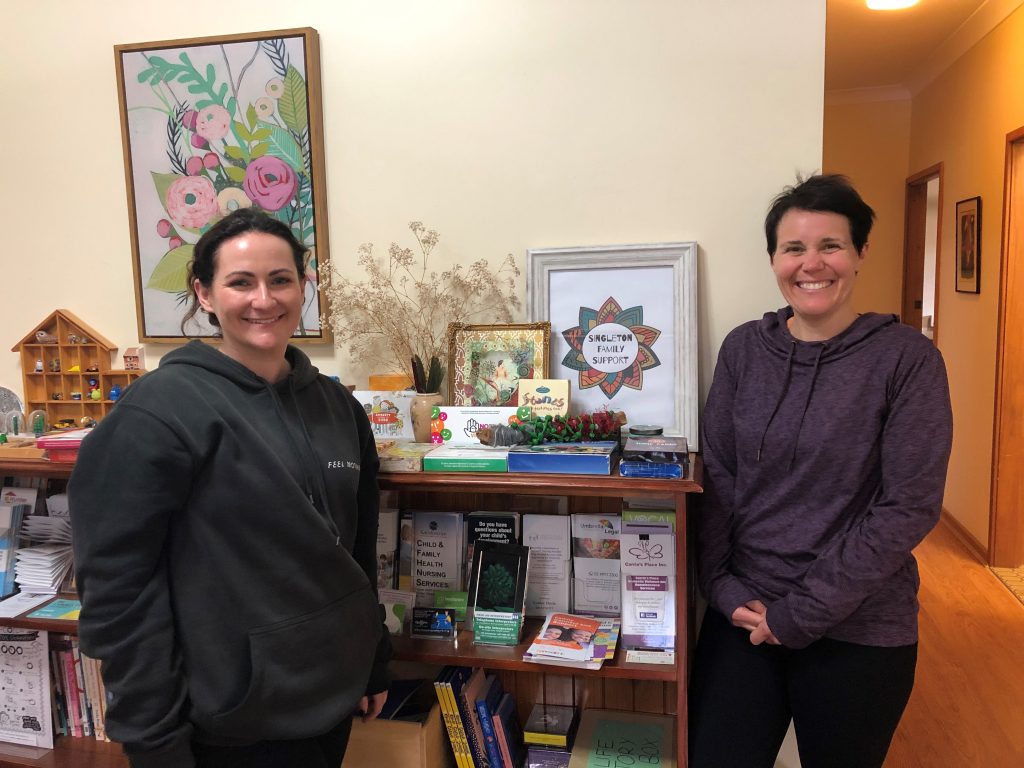
The small regional town of Katanning, in the ‘heart’ of the Great Southern agricultural region, 287 kilometres south-east of Perth in WA, has a shire population of just 4,200 people. While the area is essentially known for agriculture, the town is a regional centre that offers a range of government, health and education services. The Katanning community also prides itself on its multicultural diversity.
This small community was impacted by a bushfire in February 2020, with rebuilding efforts hampered by lockdowns soon after. The community identified that it needed to find ways to engage their younger residents and keep them connected and supported.
The Katanning and Districts Pool Association Incorporated partnered with the Katanning Hub Community Resource Centre (CRC) and the Shire of Katanning to run a Youth program, inviting young people on a Friday night to come to their pool hall to socialise, learn new skills and share a meal. The program has been an overwhelming success with 35-40 young people attending each week.
The hall opened in the late 80s and did not include any kitchen facilities. Requests to use the hall from other community groups had been slowly increasing, as it is one of only a few indoor spaces available in Katanning. Providing catering facilities would make the venue a more suitable location to support these additional groups and their events. With the changing nature of the activities held at the hall, it was time for a refresh. To create a more usable space for community groups to meet, it was decided to add a kitchen area to better support the Youth program in preparing and serving these meals.
Other groups that use the hall were also supportive, including the local men’s group who expressed support for a kitchenette to make a cuppa and make their own events more welcoming for its members.
Thanks to a $10,000 Strengthening Rural Communities grant, funded by IKEA Australia, the Katanning and Districts Pool Association was able to revamp the ageing pool hall and add a meal preparation and serving area.
Local volunteers provided amazing support for the project, contributing more than 80 hours of labour to the renovations and 20 hours to fundraising each month, ensuring the project’s success.
Since finalising the renovation works, the association’s membership has increased, volunteers have been inspired to become more active and the use of the hall by other community groups has expanded. With the improved facilities making the hall more welcoming, friendly and a safe space for people of all ages, the Katanning community is feeling more connected with access to a space tailored to enjoy each other’s company.
The Katanning Police now drop by during the Youth program and challenge the young people to a game, further strengthening these important relationships. Badgebup Aboriginal cooperation is interested in partnering to deliver the Youth program into the future and the Katanning community are proud of what has been achieved, voicing it regularly in person and via social media.
The restoration of an historic jetty trolley has had unexpected benefits for men’s shed and community members on Kangaroo Island. The trolley was first used in the 1840s to transport basalt along the jetty onto waiting ships. The Kingscote Men’s Shed restoration project has seen the revival of rare trade skills using tools that were used 100 years ago to make the trolley, and the formation of new connections in the community.
The Men’s Shed received a $3,683 Strengthening Rural Communities grant, funded by the Waislitz Family Foundation, in partnership with Australian Community Media, to support recovery from the 2019/20 bushfires that devastated much of Kangaroo Island. This project is one of many FRRR supported across the island to strengthen community connection and support recovery activities.
Graeme Connell, Chair of the Kingscote Men’s Shed said, “The Kingscote Men’s Shed volunteers are very proud of their achievement to restore a 100-year-old jetty trolley and preserve the history of these trolleys that were used on jetties around Kangaroo Island. The older members of the Men’s Shed were able to share their knowledge about the skills and tools used in the old ways of construction of steel products with the younger members.”
The group used social media to stimulate interest and encourage new volunteers. New skills and friendships were formed between Men’s Shed members and community volunteers working together on this historic project, which included a local secondary student. Many passers-by were keen to see the restoration in progress, with a cup of tea at the ready for anyone interested in learning more or just having a chat.
The newly restored trolley sits proudly at the Pioneer Memorial Park as a monument both to past activities that forged the town, and as a marker of recovery. It has already become a favourite destination with local visitors and community members, particularly given its location overlooking the old wharf and beautiful coastline.
The Men’s Shed has well and truly achieved its goal of delivering a shared community project to create “meaningful interactions”. The sense of achievement and confidence from the project, and the camaraderie that has come from it has boosted mental health and wellbeing, which will have lasting impact on the group and wider community.
